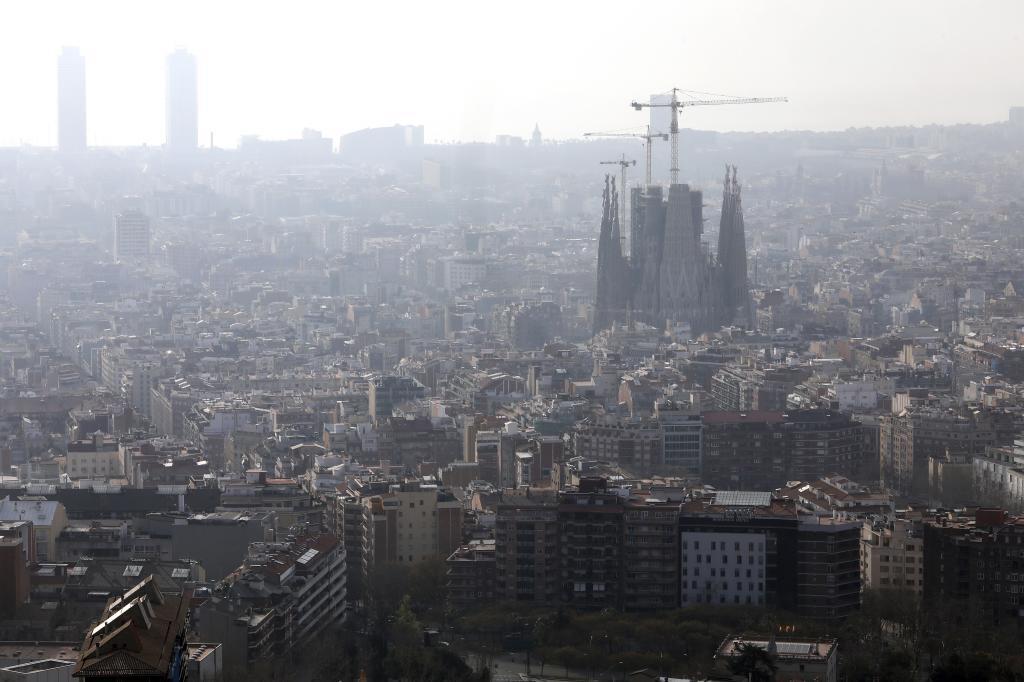More sneezing, more nasal congestion, more cough, irritation ... Breathing becomes more and more uphill. What is intensifying these symptoms of rhinitis? New research points to guilty of contamination. According to their conclusions, people who live in cities with high levels are the ones with the most severe rhinitis.
This is shown in an article that has just been published by the Journal of Allergy and Clinical Immunology and is led by a group of scientists from the Institute of Global Health of Barcelona (ISGlobal), a center promoted by 'la Caixa'. The researchers of this work point directly to the suspended particles of the atmosphere, especially those with a diameter less than 2.5 (PM2.5) and 10 micrometers (PM10).
"The higher the level of exposure, the greater the risk of suffering from severe rhinitis," the authors of the scientific article conclude. Both PM2.5 and PM10 have been associated with worsening congestion, sneezing and nasal irritation of rhinitis.
On the other hand, and according to the data collected in the study, gaseous emissions (NO2) are responsible for intensifying nasal secretion and congestion. Both pollutants come from traffic. "Their role in the severity of symptoms is probably related to oxidative stress processes, apoptosis (a process in which cells that are damaged are eliminated) and inflammation," explains Emilie Burte, first author of the work. " Our study suggests that suspended particles (PMs) have a different effect from gaseous emissions (NO2) possibly due to differences in their mechanisms of action, which give rise to different inflammatory responses of the respiratory tract, although more are required studies to validate this hypothesis. "
In this work we have analyzed the information of 1,408 patients with rhinitis from 17 European cities: Barcelona, Oviedo, Paris (France), Antwerp (Belgium), Umea (Sweden) and Erfurt (Germany). All participants responded to a questionnaire about the severity of each of the symptoms of rhinitis, taking stock of how these discomforts interfere in their daily lives. As for the air pollution to which each of them was exposed, it was obtained from the 'European Study of Cohorts for Air Pollution Effects' (ESCAPE) project, of which ISGlobal was also part.
"This study brings new knowledge about rhinitis, a disease that, although not fatal, poses a significant challenge to public health and is linked to a deterioration of daily life, as well as a very high cost to public funds due to the treatments, the decrease in productivity and absenteeism, "says Bénédicte Jacquemin, research leader.
Rhinitis is a disorder of the nasal mucosa that affects 20% -50% of the world's population . It causes congestion, sneezing, heavy secretions, irritation and sometimes loss of smell. "Little is known about the risk factors for this disease, except that it is related to asthma, a pathology closely associated with air pollution," Jacquemin tells this newspaper. For this reason "we wanted to check if long-term exposure to atmospheric pollution also plays a determining role and, indeed, our study suggests that it is a risk factor for the severity of rhinitis."
According to the criteria of The Trust Project
Know more- Science and Health
Health: A 17-year-old Belgian girl dies of toxic shock caused by a tampon
Health Joan Massagué's team opens a path for the treatment of cancer metastasis
Health 5% of bladder tumors are associated with a contaminant in drinking water

